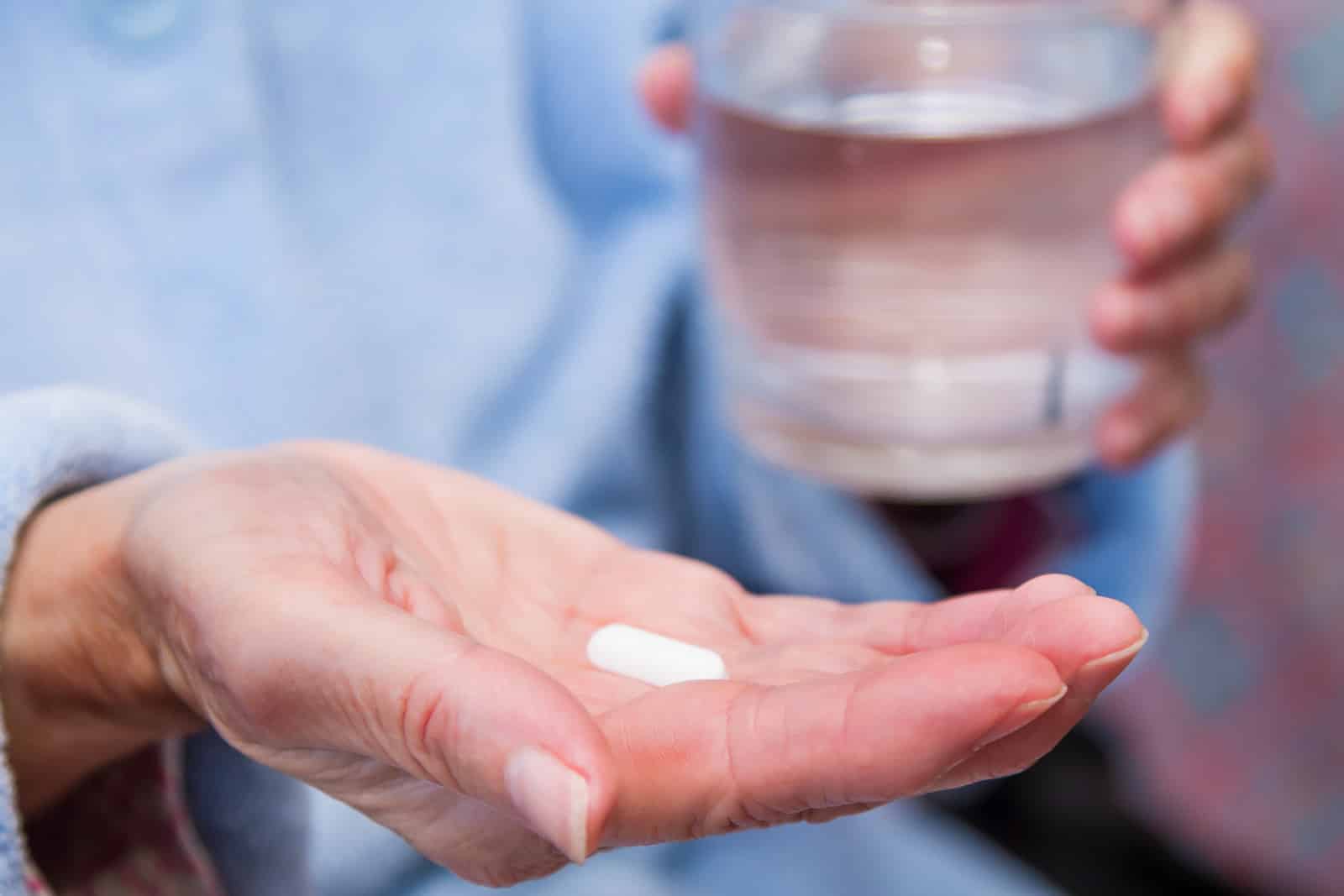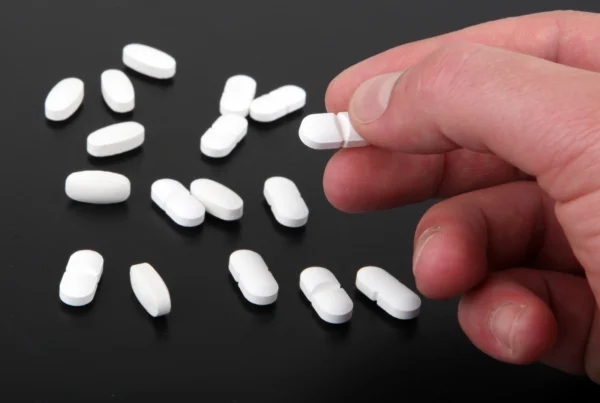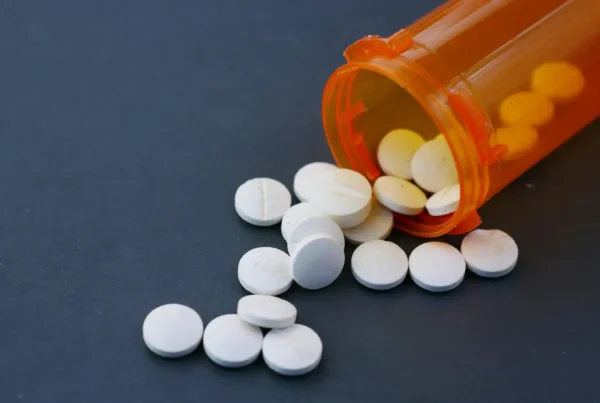
Table of Contents
Key Points
- Adderall is a widely used stimulant drug for attention deficit hyperactivity disorder (ADHD).
- Though Adderall can be effective, it has serious side effects and a risk of abuse or addiction.
- Many prescription alternatives to Adderall have varying degrees of risks and side effects.
- Over-the-counter and natural alternatives to Adderall may be effective for reducing ADHD symptoms, but there’s little research.
Adderall is an effective and well-known stimulant drug that’s prescribed to treat attention deficit hyperactivity disorder (ADHD). Stimulant medications like Adderall act on the levels of neurotransmitters in the brain to treat the symptoms of ADHD, helping you stay more organized and focused.
However, Adderall can have serious side effects and a potential for abuse and addiction. If you’re concerned about Adderall’s risks, there are alternatives to consider. Keep in mind that Adderall alternatives may come with their side effects, risks, and efficacy.
Prescription Alternatives to Adderall
Adderall may be one of the most widely used stimulant medications to treat ADHD, but it’s not the only drug that can be effective. Here are some prescription alternatives to Adderall:
Ritalin
Ritalin (methylphenidate) is a stimulant medication that affects the neurotransmitters norepinephrine and dopamine in the brain to reduce hyperactivity and improve impulse control and attention. While Adderall and Ritalin both have the potential for abuse, their efficacy varies among individuals rather, with one being categorically more potent than the other.
Ritalin is not without the risk of allergic reactions or side effects, either. Some common side effects include:[1]
- Sweating
- Mood changes
- Fast heart rate
- Loss of appetite
- Weight loss
- Dry mouth
- Nausea
- Vomiting
- Stomach pain
- Headache
- Dizziness
More serious side effects may include:[2]
- Signs of heart problems
- Signs of psychosis
- Signs of circulation problems
- An erection that is painful or lasts more than 4 hours
Vyvanse
Vyvanse (lisdexamfetamine) is a similar stimulant to Adderall in both mechanism and efficacy for treating ADHD, as well as side effects. It works by blocking the reuptake of dopamine and norepinephrine to increase the levels in the brain, which can improve attention and focus but also raise the risk of abuse.
Like Adderall, Vyvanse has some risks and side effects. The common side effects include:[3]
- Dry mouth
- Weight loss
- Loss of appetite
- Sleep problems
- Fast heart rate
- Dizziness
- Irritability
- Nausea
- Vomiting
- Stomach pain
- Diarrhea
- Constipation
There are risks of serious side effects like:[4]
- Signs of heart problems
- Signs of psychosis
- Signs of circulation problems
Though rare, Vyvanse can potentially lead to serotonin syndrome. This condition can be life-threatening and includes symptoms like hallucinations, fever, fast heart rate, muscle stiffness, loss of coordination, nausea, vomiting, and diarrhea, especially when combined with other drugs affecting serotonin.
Provigil
Provigil (modafinil) is a drug to treat narcolepsy, but it may be used off-label to treat ADHD. It helps with focus and cognitive enhancement and acts as a milder stimulant. However, it can trigger anxiety, irritability, and agitation. While lower, Provigil does have the risk of abuse.
The common side effects of Provigil include:[5]
- Headache
- Nervousness or anxiety
- Back pain
- Nausea
- Diarrhea
- Upset stomach
- Sleep problems
- Stuffy nose
Some serious side effects may occur with Provigil, including:[6]
- Skin rash or hives
- Swelling in the legs
- Dark urine or yellowing of the skin
- Swelling in the face, eyes, lips, tongue, or throat (signs of an allergic reaction)
- Hallucinations or unusual thoughts or behaviors
- Chest pain or trouble breathing
- Depression or suicidal thoughts or actions
Focalin
Focalin (dexmethylphenidate) is a stimulant drug like Adderall that raises the levels of norepinephrine and dopamine. Though they work similarly, Focalin has a different active ingredient from Adderall.
Common side effects with Focalin may include:[7]
- Loss of appetite
- Nausea
- Stomach pain
- Fever
More serious side effects may occur, including:[8]
- Signs of heart problems
- Signs of psychosis
- Sings of circulation problems
- An erection that’s painful or lasts 4 hours or longer
Intuniv ER
Intuniv is a non-stimulant medication that may be used to treat ADHD by influencing the receptors involved in impulse control and attention regulation. It’s an extended-release version of guanfacine, a medication used to treat blood pressure.
Unlike stimulants that increase the levels of dopamine and norepinephrine, guanfacine is more targeted and may have fewer side effects.
Intuniv can cause a potentially dangerous allergic reaction and certain side effects, including:[9]
- Dizziness
- Drowsiness
- Irritability
- Low blood pressure
- Slow heart rate
- Dry mouth
- Nausea
- Constipation
- Stomach pain
- Difficulty sleeping
There are some serious side effects with Intuniv, including:[10]
- Anxiety
- Nervousness
- Severe drowsiness
- Hallucinations
- Lightheadedness
Strattera
Strattera (atomoxetine) is a non-stimulant ADHD medication. Unlike Adderall and similar stimulant drugs, which stimulate the release of norepinephrine and dopamine, Strattera works by selectively inhibiting the reuptake of norepinephrine. This neurotransmitter plays an important role in attention and impulse control.
Because Strattera isn’t a stimulant drug, it doesn’t have the same potential for abuse or addiction as stimulant medications. This is ideal if you struggle with substance use or prefer to avoid stimulant drugs.
Strattera is not without risks and side effects, however. The common side effects of Strattera include:[11]
- Nausea
- Vomiting
- Upset stomach
- Constipation
- Loss of appetite
- Mood changes
- Tiredness
- Urination problems
- Impotence
Though less common, Strattera can cause an allergic reaction with swelling and difficulty breathing. Some people may experience feelings of impulsivity, agitation, hostility, aggression, depression, and hyperactivity.
Serious side effects may occur in some people, including liver problems, signs of psychosis, signs of heart problems, and painful or difficult urination.[12]
Over-The-Counter (OTC) Alternatives to Adderall

Nootropic Supplements
Nootropic supplements, available by prescription and over-the-counter, come in stimulant and non-stimulant forms. The OTC options may help with ADHD symptoms by boosting cognitive functioning, memory, learning, alertness, and focus.[13]
Some common OTC nootropic supplements include:
- Resveratrol: This is a naturally occurring antioxidant found in the skins of red and purple fruits like grapes and blueberries. Some studies suggest that resveratrol may help reduce the symptoms of ADHD.
- Creatine: This amino acid may help with brain health and functioning, which may help with ADHD symptoms.
Herbal Stimulants
Some herbal stimulants may be used to mimic the effects of a prescription stimulant and reduce the symptoms of ADHD, but there’s little research into efficacy. Some of the common herbal stimulants include:
- Guarana: This herb has bioactive ingredients and some caffeine that can help with cognitive performance.
- Ginseng: Ginseng is a traditional Chinese energy and brain function herb. Some studies suggest that ginseng may be effective for ADHD symptoms.[14]
Vitamins and Minerals
Research suggests that poor nutrition and low levels of certain vitamins and minerals may be connected to ADHD. Because of this, some vitamin and mineral supplements are thought to help with ADHD symptoms, including:
- Zinc: Research suggests that there’s a higher incidence of zinc deficiencies in people with ADHD.[15]
- Magnesium: Multiple studies revealed a potential link between low magnesium levels and higher rates of ADHD.[16]
Natural Alternatives to Adderall
If you prefer to try more natural alternatives, some options are available. However, it’s important to remember that natural alternatives may not work as well as prescription medications specifically intended to treat ADHD. They’re not regulated, so assessing quality or knowing exactly what you’re taking can be difficult.
Here are some natural options:
- Ginkgo Biloba: Ginkgo biloba is an herbal supplement that improves memory and focus. Though more research is needed, studies suggest that it may help treat ADHD as part of a comprehensive treatment plan.[17]
- Pycogenol: Pycogenol is an antioxidant that can help improve circulation and reduce blood pressure. Because it can reduce oxidative stress, it can help minimize ADHD symptoms. A study from 2017 found Pycnogenol supplements to reduce hyperactivity in children with ADHD.[18]
- GABA: Gamma-aminobutyric acid (GABA) is a natural brain chemical that calms the nervous system and may ease the symptoms of hyperactivity, impulsivity, and aggressiveness in ADHD, but more research is needed.[19]
While generally well tolerated, natural supplements aren’t without risks and side effects – particularly some interactions with other drugs. If you’re considering a natural alternative to Adderall to treat ADHD, make sure to speak to your doctor.
Getting Help for ADHD
Though Adderall is widely prescribed and often effective for people with ADHD, it’s not the only option available. There are many alternative prescription medications, OTC supplements, and natural remedies for ADHD that may have fewer side effects and lower abuse potential.
Frequently Asked Questions
OCEAN RECOVERY EDITORIAL GUIDELINES
The internet contains a vast amount of misinformation, but when it comes to your health only peer reviewed, research centered data matters. At Ocean Recovery, all content published throughout our website has been rigorously medically reviewed by a doctorate level clinician, and cross checked for medical accuracy. Our editorial process helps our readers trust that the information they are consuming is factual and based upon scientific data. Your health is our top priority, find out more about how we safeguard the integrity of information on our website. Read More About Our Process




